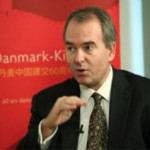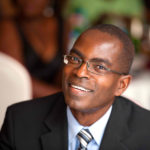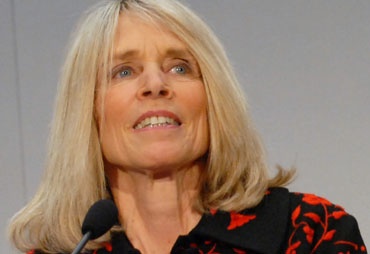Global Development: What should we focus on and how will we measure success?
Speakers
-

Senior Advisor for Partnerships, United Nations
Ambassador Tomas Anker Christensen is the Senior Advisor for Partnerships in the Executive Office of the Secretary-General at the United Nations Secretariat. Mr. Christensen’s current role is to assist and advise the Secretary-General in designing a new United Nations Partnership Facility and promoting partnerships as a means of implementing United Nations goals and mandates, currently with a particular focus on climate action and finance. Ambassador Christensen brings over 20 years of diplomatic experience to the job.
From 2010 to 2012, Ambassador Christensen was the Under Secretary for Global Challenges at the Ministry of Foreign Affairs (MFA) of Denmark. Prior to that, he served as the Ambassador of Denmark to Iran as well as the Director for the Middle East and North Africa at the MFA.
Earlier in his career, Ambassador Christensen served at the Mission of Denmark to the United Nations in New York and at the Danish Embassies in Algiers, Cairo, Luxembourg and New Delhi as well as in the Ministry of Foreign Affairs in Copenhagen.
-

President, Ashesi University, Ashesi University
Patrick Awuah is the Founder and President of Ashesi University, a private, not-for-profit, liberal arts institution that has quickly gained a reputation as one of Ghana’s finest universities. Under Patrick’s leadership, Ashesi has created a curriculum and model grounded in the liberal arts that fosters critical thinking, entrepreneurship, ethics and leadership.
Before founding Ashesi University, Patrick worked as a Program Manager for Microsoft, where he spearheaded the development of dial-up internet working technologies and gained a reputation for bringing difficult projects to completion.
He holds bachelor’s degrees in Engineering and Economics from Swarthmore College; an MBA from UC Berkeley’s Haas School of Business; and honorary doctorates from Swarthmore College, Babson College, and the University of Waterloo.
Patrick’s awards and recognitions include the MacArthur Fellowship; the McNulty Prize; and the Elise and Walter A. Haas International Award. In recognition of his service to Ghana, Patrick was awarded membership to the Order of the Volta by His Excellency, President J.A. Kufuor, in July 2007. The Order of the Volta is one of Ghana’s highest awards, given to individuals who exemplify the ideal of service to the country. In 2015, Patrick was named one of the World’s 50 Greatest Leaders by Fortune Magazine. In 2017, he was awarded the Qatar Foundation’s WISE Prize for Education in recognition of his outstanding, world-class contribution to education.
Patrick served on the Advisory Committee on Voluntary Foreign Aid (ACVFA) of the U.S. Agency for International Development from 2010 to 2016. He is a Fellow of the Africa Leadership Initiative of the Aspen Global Leadership Network; a member of the Council on Foreign Relations; and a member of the Tau Beta Pi honor society for excellence in engineering.
-

Assisstant to the Director, Opportunity Youth United
Dorothy Stoneman is the founder and board chair of the first YouthBuild program, started in 1978 and still operating in East Harlem. She created and led YouthBuild USA from 1988 through 2016 to spread this program throughout the nation and internationally with public funds and fidelity to the program philosophy and design. There are now 260 YouthBuild programs in the US and 80 in 21 other countries. Over 200,000 YouthBuild students have built over 35,000 units of affordable housing in their communities while earning their High School Equivalency diploma.
Stoneman is currently the assistant to the director for Opportunity Youth United (www.OYUnited.org) a multi-racial movement of low-income young adults and their allies working to diminish poverty and increase opportunity in America. They have produced a broad policy agenda and organized Community Action Teams in 20 communities.
Stoneman graduated from Harvard University in 1963 and joined the Civil Rights Movement. She lived and worked in Harlem for the next 24 years, in the Public Schools, at the parent-controlled East Harlem Block Schools, and with the Youth Action Program empowering young adults to create community development projects of their own design.
She received the MacArthur “genius” Fellowship, John Gardner Leadership Award, Skoll Award for Social Entrepreneurship, Harvard Call to Service Award, and the Boston “Woke White Woman” award. In 2018 she contributed to “Healing Our Divided Society,” a book tracking the 50 years since the Kerner Commission Report. This would be a good read for anyone interested in ending poverty and racism in the United States.
-

Director, Copenhagen Consensus Center
Dr. Bjorn Lomborg researches the smartest ways to improve the environment and the world. He is one of TIME Magazine's 100 most influential people in the world, one of the 75 most influential people of the 21st century according to Esquire magazine, and one of the 50 people who could save the planet according to the UK Guardian. Lomborg has repeatedly been named one of Foreign Policy's Top 100 Global Thinkers.
He is an adjunct professor at Copenhagen Business School and regularly works with many of the world’s top economists, including 7 Nobel Laureates. His think tank, the Copenhagen Consensus Center, was ranked by the University of Pennsylvania as one of the world’s "Top 25 Environmental Think Tanks".
Lomborg is a frequent commentator in print and broadcast media, for outlets including the New York Times, Wall Street Journal, The Guardian, CNN, FOX, and the BBC. His monthly column is published in 19 languages, in 30+ newspapers with more than 30 million readers globally.
-

Director (2009-2016), Skoll Centre for Social Entrepreneurship
Dr. Pamela Hartigan was Director of the Skoll Centre for Social Entrepreneurship at Said Business School at the University of Oxford from 2009 until her passing in 2016. She was also founding partner of Volans Ventures, an organization focused on building innovative scalable solutions to challenges affecting our future.
Prior to starting Volans, Dr. Hartigan spent eight years as the Founding Managing Director of the Schwab Foundation for Social Entrepreneurship, a sister organization of the World Economic Forum, where she was also a member of the Managing Board.
Of Ecuadorian origin, Dr. Hartigan first came to the United States at 17 years of age to study at Georgetown University; she went on to complete a PhD in human developmental psychology at the Catholic University of America. Throughout her career, she held varied leadership positions in multilateral organizations and educational institutions, as well as in entrepreneurial ventures. She was responsible for conceptualizing and creating new organizations, departments, and programs across a variety of institutions and platforms.
Dr. Hartigan was a frequent lecturer on entrepreneurship and innovation at graduate business schools in the USA, Europe, and Asia, and an Adjunct Professor at the Columbia Business School and at the University of Technology Sydney. She co-authored a book with John Elkington, founder of SustainAbility (UK), entitled The Power of Unreasonable People: How Entrepreneurs Create Markets to Change the World, which was published by Harvard Business Press in 2008.
She was a trustee of social investment organizations, publicly listed companies, and social impact focused organizations around the world.
Dr. Pamela Hartigan died on August 12, 2016, at her home in France.
-
Michael Green is Chief Executive Officer of the Social Progress Imperative. An economist by training, he is co-author (with Matthew Bishop of ‘The Economist’) of Philanthrocapitalism: How Giving Can Save the World and The Road from Ruin: A New Capitalism for a Big Society. Previously Michael served as a senior official in the U.K. Government’s Department for International Development, where he managed British aid programs to Russia and Ukraine and headed the communications department. He taught Economics at Warsaw University in Poland in the early 1990s. His TED Talks have been viewed more than three million times. His 2014 Talk was chosen by the TED organisation as one of the ‘most powerful ideas’ of 2014 and by The Telegraph as one of the 10 best ever.
-
In 1966, as a young post-graduate student from a privileged urban background, Bunker Roy volunteered to spend the summer working with famine affected people in Bihar, one of India’s poorest states. This experience changed him. He committed himself to fight poverty and inequality. He founded the Barefoot College in Tilonia (also known as Social Work and Research Centre) in 1972 to bridge the inequality gap and demystify technology with the people and put it to good use in the hands of poor communities. This radically simple approach to ending poverty, by tapping the wisdom, skills, and resourcefulness of the poor themselves, is less expensive and more successful than approaches that rely on external experts. Barefoot College recruits illiterate villagers and trains them to build and maintain life-changing technologies and systems such as solar electricity, water and sanitation, schools and clinics, artisan businesses, and community engagement.